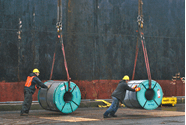Government/Policy

October 4, 2022
Commerce Revises Hyundai Steel’s CVD on Hot-Rolled Flats
Written by Laura Miller
The US Department of Commerce has slightly adjusted Hyundai Steel’s countervailing duty (CVD) on its shipments of hot-rolled steel flats to the US.
The adjustment comes after Hyundai challenged Commerce’s results of the 2017 administrative review of the duties at the US Court of International Trade (CIT). The CIT agreed with Hyundai that Commerce had miscalculated its subsidy rate of 0.51%.
This week, Commerce adjusted the rate slightly downward to 0.46% de minimis in order to bring the rate in line with the Court’s remand determination. The US Customs and Border Protection (CBP) agency does not collect duties on de minimis rates below 0.5%.
By Laura Miller, Laura@SteelMarketUpdate.com







